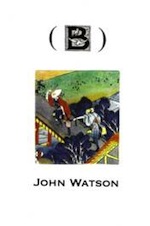We asked upcoming tutor Martin Langford what he read over the holiday break. As you can see, he got through a staggering amount of titles! Martin will be teaching a poetry masterclass, For the Beauty of the Edge, with us in March and April.
In poetry: John Watson’s “B” (Island Press) which is the comic record of Watson’s purported attempt to get Phillip Hammial to engage in a renga sequence. This type of comic verse, which satirises, at the same time as it enjoys, the literary world it belongs to, is relatively rare in Australia. Much of our comic tradition has worked the distinction between colloquial and proper with something of a chip on its shoulder, particularly when it has dealt with literary matters. Work like “B” is different: it has no desire to undermine or replace the world it pokes fun at: the message is rather that Australian poetry is a rich enough forest now to bear a bit of light-hearted foolery.
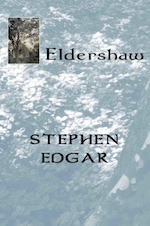 Stephen Edgar’s Eldershaw (Black Pepper) is a meditation on pastness, on the way in which a house, and the relationships it witnessed, continue to move, and illumine, even when they no longer exist. In many ways, this is a very private book: one which pays homage to the vanished, by teasing its traces into words – perhaps to see what can, after all, be retained. Together, the sense of the irretrievability of the past, and of writing as recuperation, have the effect of reinforcing and highlighting each other: the past is saved, but we know it is only illusory, a trick of emphasis and attention.
Stephen Edgar’s Eldershaw (Black Pepper) is a meditation on pastness, on the way in which a house, and the relationships it witnessed, continue to move, and illumine, even when they no longer exist. In many ways, this is a very private book: one which pays homage to the vanished, by teasing its traces into words – perhaps to see what can, after all, be retained. Together, the sense of the irretrievability of the past, and of writing as recuperation, have the effect of reinforcing and highlighting each other: the past is saved, but we know it is only illusory, a trick of emphasis and attention.
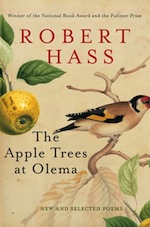 Lastly: Robert Hass’s The Apple Trees at Olema (Ecco/HarperCollins), his new and selected from 2010. Like many good writers whose point of view shifts between involvement and appraisal, ultimately from the point of view of our mortality, Hass seems to me to operate within the long shadow cast by Chekhov, but that is not really saying any more than that Chekhov was one of the first to present every action, no matter how trivial or absurd, in the light of mortality rather than belief. Hass does more than this, of course: influenced by Asian traditions, he has a wonderful sense of the both the urgency, and the plain, daily necessity, of our engagements, and, as poetry can, this is expressed with a compelling sense of their textures. If you don’t know him, Hass is one of the essential contemporary poets (one of a very long list).
Lastly: Robert Hass’s The Apple Trees at Olema (Ecco/HarperCollins), his new and selected from 2010. Like many good writers whose point of view shifts between involvement and appraisal, ultimately from the point of view of our mortality, Hass seems to me to operate within the long shadow cast by Chekhov, but that is not really saying any more than that Chekhov was one of the first to present every action, no matter how trivial or absurd, in the light of mortality rather than belief. Hass does more than this, of course: influenced by Asian traditions, he has a wonderful sense of the both the urgency, and the plain, daily necessity, of our engagements, and, as poetry can, this is expressed with a compelling sense of their textures. If you don’t know him, Hass is one of the essential contemporary poets (one of a very long list).
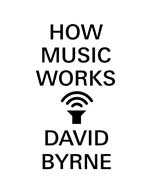 As for books other than poetry: David Byrne’s How Music Works (Canongate 2013) is Byrne’s attempt to think through the issues around music that he had collected after what is now a substantial part of a lifetime in the game. It is very honest and straightforward, which is not necessarily easy for people who’ve gained the sort of respect he has; it is, however, troubled by a recurring anxiety about status: he is put out to find that, despite being a champion of his own world, the respect offered to, say, Beethoven or Bach, is so difficult to challenge. While he states a preference for layered, beat-driven music, as opposed to music constrained by what he calls a hierarchy of techniques revolving around melody, he admits that he doesn’t really get the classical composers, and so his capacity to argue for his own music is limited by his inability to draw telling comparisons. Although the book has many fascinating insights into the way Byrne has put his own work together, he is not really able to think his way through the most interesting questions connected with popular music, and the field still needs a writer who can offer the sort of insight and overview that someone like Alex Ross, say, provides for classical.
As for books other than poetry: David Byrne’s How Music Works (Canongate 2013) is Byrne’s attempt to think through the issues around music that he had collected after what is now a substantial part of a lifetime in the game. It is very honest and straightforward, which is not necessarily easy for people who’ve gained the sort of respect he has; it is, however, troubled by a recurring anxiety about status: he is put out to find that, despite being a champion of his own world, the respect offered to, say, Beethoven or Bach, is so difficult to challenge. While he states a preference for layered, beat-driven music, as opposed to music constrained by what he calls a hierarchy of techniques revolving around melody, he admits that he doesn’t really get the classical composers, and so his capacity to argue for his own music is limited by his inability to draw telling comparisons. Although the book has many fascinating insights into the way Byrne has put his own work together, he is not really able to think his way through the most interesting questions connected with popular music, and the field still needs a writer who can offer the sort of insight and overview that someone like Alex Ross, say, provides for classical.
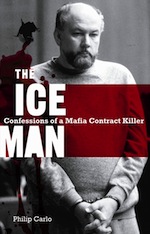 The Ice Man, Philip Carlo’s biography of the contract killer, Rickard Kuklinski, (HarperCollins 2006), is a good, if brutal, read. Kuklinski was as monstrous as they come, a serial killer who turned his hobby to good use: a nightmare of the post-war New York underbelly. If it should be thought odd that a poet should be interested in material like this, the point is that if poetry (or any writing) is to be good enough, it has to find a way to be able to talk about both the Kuklinski’s of the world, and the ways in which we gesture beyond them. That said, I have to admit that part of my own fascination with characters like Kuklinski is based on my continuing dismay that there are spaces in which poetry (or any art-form) just do not operate: some of this may be a personal tic, some of it may be a result, at the broadest level, of trying to operate in the arts in Australia. It is a scary thing to peer out at territory in which the rules of one’s world have no impact. As a poet, one constantly negotiates such crevasses anyhow: one only has to attend a Christmas barbecue. But Kuklinski is as savage an embodiment of this as one might find. He’s not just the crevasse: he’s the creature that leaps out and throttles you before you even announce your interest. In real life you can’t just ignore the forces he represents: they may be as brutal as war – or Kuklinski – or they may be as straightforward as the need to earn one’s daily bread. Whatever form they take, when they appear, you have to set your art-form aside and engage with them, and hope that art may be possible again, at some time in the future. And you are reminded, all over again, of the fragility of our gestures, and of the provisionality of the spaces that are set aside for them.
The Ice Man, Philip Carlo’s biography of the contract killer, Rickard Kuklinski, (HarperCollins 2006), is a good, if brutal, read. Kuklinski was as monstrous as they come, a serial killer who turned his hobby to good use: a nightmare of the post-war New York underbelly. If it should be thought odd that a poet should be interested in material like this, the point is that if poetry (or any writing) is to be good enough, it has to find a way to be able to talk about both the Kuklinski’s of the world, and the ways in which we gesture beyond them. That said, I have to admit that part of my own fascination with characters like Kuklinski is based on my continuing dismay that there are spaces in which poetry (or any art-form) just do not operate: some of this may be a personal tic, some of it may be a result, at the broadest level, of trying to operate in the arts in Australia. It is a scary thing to peer out at territory in which the rules of one’s world have no impact. As a poet, one constantly negotiates such crevasses anyhow: one only has to attend a Christmas barbecue. But Kuklinski is as savage an embodiment of this as one might find. He’s not just the crevasse: he’s the creature that leaps out and throttles you before you even announce your interest. In real life you can’t just ignore the forces he represents: they may be as brutal as war – or Kuklinski – or they may be as straightforward as the need to earn one’s daily bread. Whatever form they take, when they appear, you have to set your art-form aside and engage with them, and hope that art may be possible again, at some time in the future. And you are reminded, all over again, of the fragility of our gestures, and of the provisionality of the spaces that are set aside for them.

